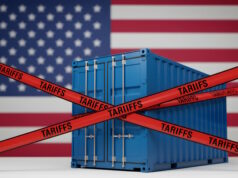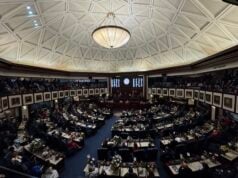
Two proposed bills aimed at cracking down on sweepstakes casinos by banning dual-currency gambling have failed to advance in the Florida legislature. Despite lawmakers extending the legislative session from the original May 2nd end date to June 6th, both Senate Bill 1404 and House Bill 1467 will not be considered during the extended period.
The Sweepstakes Casino Boom
People in Florida have started using sweepstakes and social casinos that work in areas of the law that are not clear because online casinos are not regulated. They make use of modern technology to walk around gambling restrictions, usually having two kinds of virtual coins available. Some virtual money is purchased, while others are given for no cost through a “sweepstakes” entry.
For many Florida residents seeking online gaming experiences, sweepstakes casinos fill a significant void. Players often compare these platforms while researching the features of top mobile poker apps available in other states with more permissive regulations, looking for the best gaming experience possible. The growing popularity of mobile poker has created a knowledgeable player base in Florida that carefully evaluates game variety, tournament structures, and user interface quality when choosing where to play.
The Failed Legislation
Senate Bill 1404 aimed to address the problem of unregulated gambling in Florida by making the punishment for running illegal gaming much harsher. Sweepstakes casinos were specifically in the bill’s crosshairs because it considered any internet game where a chance-based reward is given, whether skill was used or not, to be internet gambling.
This definition would have affected sites that offer casino-style games using virtual currencies. Although the bill made it through two Senate committees, it still wasn’t included in the extended session’s list of legislation.
In the same way, House Bill 1467 looked to impose similar controls on online gaming, but it will not be taken up by lawmakers.The bills’ sponsors had expressed optimism earlier in the session, citing growing concerns about the proliferation of unregulated gambling platforms throughout the state. Should either bill have been approved, operators of sweepstakes would risk felony charges for Florida business and the loophole letting them run would be shut down.
Impact on Florida’s Gaming Landscape
The rejection of these bills means big changes for how gambling works in Florida. Right now, only the Seminole Tribe is allowed to offer legal sports betting and gaming in Florida, according to a 2021 agreement signed by Governor Ron DeSantis.
This compact allows online sports betting through HardRockBet, although the agreement continues to face legal challenges. A lawsuit filed last month claims that voter approval is necessary to permit online betting in the state.
Industry Response
The Social and Promotional Games Association has welcomed the bills’ failure, noting that similar legislation has recently been rejected in Arkansas, Maryland, and Mississippi. The organization frames the outcome as a victory for “economic freedom and digital innovation” that benefits Florida consumers and businesses.
Stake, currently the leading sweepstakes casino operator with reported revenue of $4.7 billion last year, stands to benefit significantly from the bills’ failure. For the foreseeable future, Florida residents can continue using Stake and other social casino platforms that operate in this regulatory gray zone.
Florida’s Gambling Future
The failed legislation highlights the ongoing tension between traditional gambling interests, technological innovation, and regulatory frameworks. While the Seminole Tribe has sole rights to specific forms of gambling in Florida, the digital landscape progresses at an extremely fast pace, creating obstacles to overcome for the legislators who try to embrace the new entertainment dimensions.
Industry analysts believe that sweepstakes casinos are likely to follow the same trend of growth in Florida, based on the legislative outcome. The innovative dual-currency models used by these platforms have been able to withstand regulatory pressures in several states.
Consumer Protection Concerns
Despite the bills’ failure, consumer protection concerns remain. Unlike regulated gambling platforms, sweepstakes casinos typically operate without oversight from state gaming authorities, raising questions about game fairness, addiction prevention measures, and data security.
The regulatory gap also means these platforms don’t contribute to state tax revenue or problem gambling programs in the same way as regulated operations would. This absence of financial contribution to addiction services creates a situation where the potential social costs of gambling may not be adequately addressed through dedicated treatment programs and preventative measures.
Looking Ahead
This legislative setback doesn’t mean that efforts to control sweepstakes casinos in Florida will definitely stop. In future sessions, it’s likely that other such bills will appear, especially if legal cases about the existing tribal deal open new chances for regulation.
For now, things stay the same and Floridians must cope with the current combination of tribal, sweepstakes, and foreign casino options. Neighboring states with expanding online gambling may put pressure on Florida to make its own fuller rules for digital gaming.
As a result, the operators of sweepstakes casinos in Florida can continue to operate there for now without new rules to worry about. With the legislative session continuing until June 6th on other matters, gambling regulation appears to be off the table for the remainder of this year’s session.
Disclaimer
The information contained in South Florida Reporter is for general information purposes only.
The South Florida Reporter assumes no responsibility for errors or omissions in the contents of the Service.
In no event shall the South Florida Reporter be liable for any special, direct, indirect, consequential, or incidental damages or any damages whatsoever, whether in an action of contract, negligence or other tort, arising out of or in connection with the use of the Service or the contents of the Service. The Company reserves the right to make additions, deletions, or modifications to the contents of the Service at any time without prior notice.
The Company does not warrant that the Service is free of viruses or other harmful components












